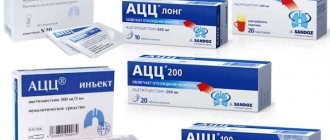What is the medicine Lizobact for?
Lysobact is an antiseptic whose action is due to the hydrochlorides of pyridoxine and lysozyme included in its composition. To give a pleasant, subtle taste, the manufacturer adds lactose monohydrate and vanillin to the composition of the drug.
Round, medium-sized tablets are a local antiseptic, which is why dentists, therapists and otolaryngologists love it. The active components of the drug directly affect bacteria, destroying their membrane. For diseases of the oral cavity of various etiologies, Lysobact is prescribed as a drug that combats the source of the problem.
Lizobact is not a drug for relieving the symptoms of an irritated throat. It has neither cooling, nor analgesic, nor expectorant effects. Spreading throughout the mucous membranes of the oral cavity, the drug destroys the source of infection.
How does the drug work and what does it treat?
Treatment with Lysobact is the optimal solution for breastfeeding, allowing a young mother to do without the use of chemical drugs that have negative side effects. There is an urgent need to take medication when developing colds or infectious diseases of the mouth and throat. The current situation with breastfeeding forces a nursing mother to be selective when choosing possible medications.
With breastfeeding, there is a very acute dilemma between the woman’s health and the well-being of the baby, to whom potentially harmful substances can reach through milk. They can affect important things through dairy nutrition: development, problems with digestion, hematopoiesis, and provoke allergic reactions.
In the treatment of inflammatory diseases of the oral cavity, lozenges are mainly absorbed through the oral mucosa and have a positive effect on the throat condition of a nursing mother. These are quickly and effectively acting tablets for pain arising from the pathogenic activity of viral, bacterial microflora, mycotic infections:
- throat diseases (pharyngitis, laryngitis, sore throat);
- oral infections (gingivitis, stomatitis, ulcers and erosions, herpetic lesions);
- manifestations of the action of influenza viruses, herpes, cytomegalovirus;
- bacterial infections that occurred after the start of recovery.
When treating angina, the instructions for the medicine mention that it is indicated only at the initial stage of development. It is during this period that Lizobact is most useful. However, the development of the purulent process can only be stopped by the use of antibiotics. There are drugs approved for breastfeeding, the selection of which is carried out by the attending doctor.
Flu
At the initial stage of development of the disease, the drug acts delicately, gently, relieving negative symptoms, reducing the duration of development of the disease, inhibiting the activity of the pathogenic agent that entered the body during infection.
The permitted use of the drug includes use by children, but from a certain age. This is due not so much to contraindications (they exist only in the case of a pathological metabolism of lactose, an individual reaction of immunity to chicken protein, from which the components of the tablets are extracted), but rather with the baby’s ability to hold it in the mouth, dissolve it without swallowing or chewing.
Cold
Timely use of the medicine will help stimulate the immune system, weakened after pregnancy and childbirth, as well as prevent the possible addition of infection to the inflammatory process. Disinfection of the mucous membrane from a penetrating pathogenic agent can be dangerous only if there is an allergy to vitamins. The doctor will certainly prescribe vitamin complexes to quickly restore weakened health. Nutrition, even the most balanced, intensive one, does not always replenish the resulting deficiency; moreover, when breastfeeding there are restrictions on the consumption of certain foods that can compensate for the deficiency that has arisen.
We recommend reading: Relief during breastfeeding
Herpes
Lysobact is effective against any manifestations of the vital activity of the virus at the initial stage of its activation. For herpetic rashes, it is recommended to use it after meals to prevent the likelihood of a rash or remove its beginning manifestations. Otherwise, the viral infection can be transmitted to the child. In severe forms of negative manifestations of herpetic lesions, the drug is ineffective, and the issue of further therapeutic measures is decided with a doctor depending on the situation.
Can a nursing mother take Lizobact?
Acting locally, the drug destroys pathogenic flora, regardless of its etiology: it can be bacteria, fungus or a viral infection. Once in the gastrointestinal tract, the drug is quickly absorbed, its components can accumulate in tissues and muscles. Lysozyme and pyridoxine are excreted by the kidneys - in the urine.
Despite the fact that lysozyme easily passes into breast milk, treatment of a nursing mother does not become dangerous for the baby. This is explained by the fact that lysozyme is a natural component that is part of the saliva of a healthy person. The child has his own lysozyme, secreted by the salivary glands. Increasing its content does not have negative consequences.
Pyridoxine is vitamin B6, which accelerates the healing process of damaged oral tissue, which also does not pose a risk to the child’s health.
When is the drug prescribed for hepatitis B?
During lactation, many medications are prohibited for use, as they can cause serious harm to the body, change the quality or quantity of milk, and cause harm to the baby.
- Lysobact is not one of these drugs; for this reason, it is often prescribed for the following diseases:
- Stomatitis of various etiologies, including traumatic ones, with the formation of aphthae on the mucous surface.
- Sore throat, both viral and bacterial, with the appearance of a characteristic sore throat that occurs when swallowing.
- Changes in voice resulting from various reasons, including inflammatory processes in the larynx.
- The appearance of the main signs of tonsillitis, pharyngitis or laryngitis - as part of combination therapy.
Attention! The reason for prescribing Lizobakt is considered to be various diseases of colds, viruses and other origins, provided that they are accompanied by the appearance of unpleasant sensations in the throat.
The medication can be part of complex therapy, as it combines well with other medications.
Can the drug be used by pregnant women and nursing mothers, and why:
- since tablets rarely lead to the development of side effects, they can be used during the indicated periods of life, but subject to indications;
- You should not seek the help of a medication if you have an individual intolerance to the drug.
Angina
In acute or chronic form, this disease is indicated as a direct indication for the prescription of medication. It does not play a special role what type of tonsillitis is and why it appeared (as a result of infection with viral agents, pathogenic bacteria, fungi).
Cold
Tablets act as a symptomatic remedy. That is, they have no effect on colds. But if an unpleasant sensation in the throat occurs, they can be included in the list of medications that should be prescribed to a patient who is breastfeeding.
Flu
It is considered a viral disease that requires the use of drugs with antiviral effects. If complications occur, therapy involves the use of antibiotics.
Lizobakt will help relieve sore throat and sore throat, but it should be used in conjunction with other remedies.
Herpes
If characteristic symptoms of a herpes virus infection appear on the oral mucosa, then you should consult a doctor for help.

Lozenges will help eliminate some manifestations of herpes, but if signs of infection are present inside the mouth and not outside.
Lizobakt during pregnancy
The use of the medicine is permitted throughout the entire period of pregnancy: from the first trimester until childbirth. It is especially important for pregnant women to know which drug can safely protect against the spread of infection in case of upper respiratory tract disease. Your own saliva, which contains lysozyme, may be produced in insufficient quantities, because many expectant mothers are prohibited from drinking a lot of liquid due to edema.
In addition, altered hormonal levels during pregnancy can have an inhibitory effect on the functioning of the salivary glands. Lyzobact will easily compensate for the lack of natural lysozyme, which effectively copes with its antiseptic properties without harming the unborn child.
General instructions for use
When taking the drug, you must follow the recommended dose, which is indicated in the instructions depending on the age category:
- adult children over 12 years old – three to four times a day, two tablets;
- children aged 3-7 years – 1 tablet three times a day;
- children 7-12 years old – one tablet four times a day.
Children under three years of age are prohibited from giving Lysobact to avoid negative consequences. During the period of bearing a child, the drug is taken in an adult dose. A breastfeeding woman is allowed to be treated with this drug, as it does not have an adverse effect on the child.
READ ALSO: What can a nursing mother drink if she has a cold?
According to the instructions, the product must be consumed after meals. The tablet must be gradually dissolved until it dissolves. To increase the effect, it is recommended not to drink liquid for an hour after taking the drug.
The instructions say that lysobact is contraindicated to take only in case of individual intolerance to its components and for small children under three years of age. Babies at this age are capable of swallowing a pill or choking on it.
How to take Lizobact for sore throat
Sore throat is an infectious (contagious) disease of the upper respiratory tract that occurs when the throat is infected by the bacterium streptococcus. Lizobakt, having an antiseptic effect, helps the body fight the pathogen. However, the drug should not be used as the main therapy for angina. If the diagnosis is confirmed, the attending physician will prescribe treatment with antibiotics, which the patient will take orally. Lysobact will help accelerate the healing of damaged tissue.
For angina, Lizobact can be taken as an adjuvant therapy in the following dosages:
Children over 3 years old – dissolve 1 tablet every 4 hours.
Adults and children over 17 years old - dissolve 2 tablets every 3-4 hours.
Is it possible to use Lizobact during lactation?
During breastfeeding, doctors allow the use of the medication because it has a natural composition, rarely causes allergies, and does not affect the well-being of the mother and baby. It is also used for the prevention of viral and bacterial infections, due to its pronounced immunomodulatory effect. The main conditions for using Lyzobact while breastfeeding are correct use, compliance with the instructions and medical recommendations, and resorption for as long as possible.
On a note! Despite its natural and safe composition, for angina Lizobakt should be used with other drugs recommended by an ENT doctor. After all, tonsillitis causes swelling of the mucous membrane, inflammation of the tonsils, and is often of a bacterial nature.
Rules for using Lizobact during breastfeeding

You can take Lizobact while breastfeeding only after consulting your doctor.
According to the official instructions for use of the drug Lizobact, a woman who is breastfeeding can take one or two tablets up to four times a day. But the tablet should only be dissolved, not swallowed, as this may cause the development of side effects.
When using the product while breastfeeding, you need to consider some points:
- Lizobact is able to enhance the effect of antibacterial and diuretic agents;
- when taking antidepressants and oral contraceptives simultaneously, the effect of pyridoxine, one of the components of Lysobact, decreases, which requires an increase in dose;
- Lizobact is allowed to be absorbed by pregnant and lactating women, if there are no allergic reactions to the components of the medication;
- the medication does not impair attention and concentration, so there is no need to give up work or driving during use.
Before dissolving the tablet, the woman needs to gargle with boiled water. The effect of the drug should last at least 30-40 minutes, so the drug does not need to be chewed and swallowed, but kept in the mouth for as long as possible. After use, you should not drink or eat for at least half an hour. Lizobact should not be used for longer than 8 days without a doctor’s permission.
Lizobakt and Laripront: is there a difference?
Laripront, like Lyzobact, contains lysozyme, a natural component that is safe for pregnant women and children. However, Laripront contains another active component - Dequalinium chloride, which is a synthetic antiseptic, active against a large number of pathogenic bacteria, as well as fungi.
The direction of action of both drugs is identical - they are intended for resorption in the oral cavity, disinfecting the mucous membranes of the pharynx. However, the patient may have pronounced allergic reactions to Laripront, which is less common in patients taking Lysobact.
Contraindications
Contraindications include disorders that the patient is usually already aware of. Malabsorption of carbohydrates, lactase intolerance or lactase deficiency in an adult are determined long before the onset of lactation.
The main contraindications for use in a baby can be detected by the appearance of an allergic reaction after starting to take the medicine. This is an individual intolerance to chicken protein or lactase. In this case, use of Lyzobact should be stopped immediately. Any sign of a potential allergy is already a contraindication.
We recommend reading: Aspirin during breastfeeding










